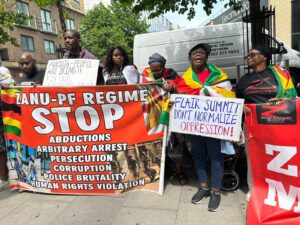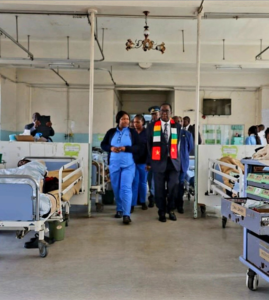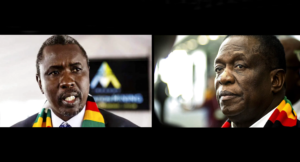MNANGAGWA’S CONTROVERSIAL 2030 PLAN DIVIDES ZIMBABWE
President Emmerson Mnangagwa gathered Zanu PF and opposition CCC lawmakers at his farm over the weekend. The meeting was part of his plan to gain support for an unpopular move to stay in power beyond his constitutional second term, which ends in 2028. Mnangagwa wants to extend his time in office until 2030, but legal experts say this cannot happen without breaking the constitution.
Mnangagwa denies he is trying to hold on to power at all costs. He calls himself a “constitutionalist,” despite the fact that he came to power through a coup. However, his allies and supporters are working hard to push forward the 2030 plan on his orders. Instead of attempting to run for a third term, Mnangagwa and his team now want to extend his current term by two years without holding elections.
Legal experts in Zimbabwe have spoken out against this plan. They argue that parliament cannot legally extend the terms of office for Mnangagwa or the members of parliament (MPs). Changing the term without elections would violate the constitution and go against the law. This legal obstacle has created serious challenges for Mnangagwa and his supporters.
Adding to the problem, Mnangagwa is not receiving full support within his own party. Vice President Constantino Chiwenga and his allies, who are backed by the military, are against Mnangagwa’s plan. This has created divisions within the ruling Zanu PF party, leaving Mnangagwa in a difficult position.
The idea of extending terms without elections has sparked a lot of debate in Zimbabwe. Many people feel this plan is unfair and goes against the principles of democracy. The constitution exists to protect citizens and ensure power is not abused, but Mnangagwa’s plan seems to go against these principles.
Supporters of the 2030 plan argue that it is necessary to maintain stability in the country. They claim that holding elections can be costly and disruptive, so extending the current term would save resources. However, critics believe this is just an excuse to allow Mnangagwa to cling to power. They point out that the same argument could be used to postpone elections indefinitely, which would harm Zimbabwe’s democracy.
Mnangagwa’s rise to power in 2017 was seen by some as a chance for change after Robert Mugabe’s long rule. He promised to respect the constitution and lead the country in a democratic way. However, his latest actions have led many to question his commitment to democracy. The fact that Mnangagwa is now considering extending his term without elections has disappointed many Zimbabweans who once hoped for a better future.
The opposition CCC, led by Nelson Chamisa, has also been drawn into this issue. By attending Mnangagwa’s meeting, CCC lawmakers have faced criticism from their supporters. Many Zimbabweans feel the opposition should stand firm against any attempts to undermine the constitution, rather than appearing to cooperate with the ruling party.
Zimbabwe’s legal experts have made it clear that any attempt to change term limits without elections would violate the law. They warn that this could lead to further political instability and damage the country’s reputation. For now, it remains uncertain how Mnangagwa will proceed with his 2030 plan. What is clear is that any move to extend his term will face strong resistance from both legal experts and the public.
As Zimbabweans watch these events unfold, many are left wondering what the future holds for their country. Will the constitution and the law be upheld, or will political leaders find ways to bypass them? For now, the divisions within the ruling party and the growing public opposition to the 2030 plan suggest that Mnangagwa’s path forward will not be easy.
The coming months will reveal whether Zimbabwe will stay true to its democratic principles or take a step backward. For now, the spotlight remains on Mnangagwa, his allies, and his opponents, as the country waits for answers.



